Members of the HSA English Department share a deep love of literature and language and its ability to cross cultures and broaden horizons. Through the study of a selection of carefully chosen texts and units each year, the curriculum aims to teach pupils how to express themselves fluently, accurately and confidently, both orally and in writing. We believe that the study of English is of fundamental importance to every pupil as it underpins all aspects of learning and will serve HSA students in their academic, professional and personal life in the future.
Key Topics covered
Texts chosen for study follow the department’s key pillars, ‘The History of English: Literature as a Journey’, ‘The Wider World’ and ‘Representation’.
A selection of the texts and units are as follows:
- Modern Class Reader: Windrush Child
- Modern Class Reader: Journey to Jo’Burg
- Pre 20th Century Reader: The Wolves of Willoughby Chase
- Modern Class Reader: The Land of Roar and the fantasy genre
- Modern Class Reader: Skellig and the mystery genre
- Creative Writing
- The Art of Rhetoric
- Myths and Legends
- Shakespeare’s Macbeth
- Shakespeare’s Sonnets and The Power of Poetry
- Travel and Transactional Writing
- Shakespeare’s The Tempest
- Jekyll and Hyde and the presentation of character
- People and Places Poetry
Enrichment opportunities and career paths
The English curriculum is enhanced through theatre trips and workshops scheduled throughout the year. Celebrated writers and storytellers are invited to the school for World Book Day. Students are encouraged to join the Debating or Creative Writing Club. House poetry and creative writing competitions allow students to demonstrate their talents, and students are supported when entering external writing competitions. Spelling Bees are also very popular throughout the school body. Weekly lessons are scheduled in the library.
English students acquire a range of skills which they can transfer to many different employment situations. Obvious careers include law, publishing, journalism, management, broadcasting, administration, information management, marketing, business, research and politics.
If one doesn’t have words, how does one think?
Iris Murdoch


